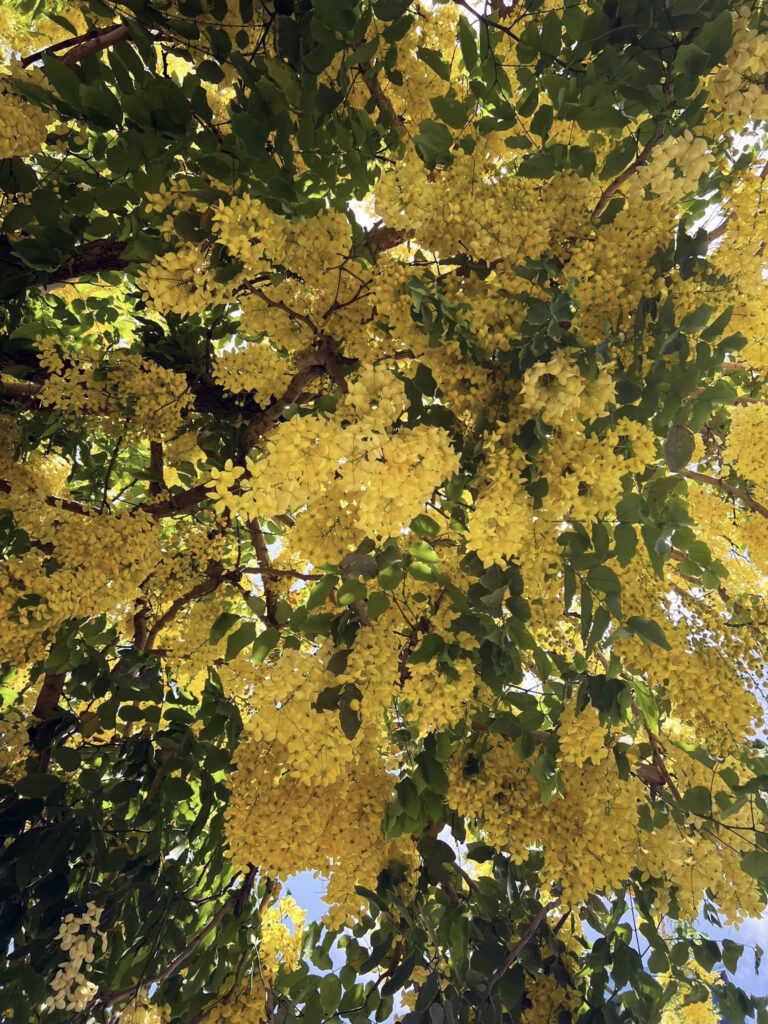Golden Shower Tree
Scientific name: Cassia fistula
Common names: golden shower, purging cassia, Indian laburnum, kani konna, pudding-pipe tree

Cassia fistula, commonly known as the golden shower tree or Indian laburnum, is a beautiful flowering plant native to the Indian subcontinent but cultivated in various tropical and subtropical regions worldwide, including the United States Virgin Islands (USVI). Its vibrant yellow flowers, which bloom in pendulous clusters, make it a striking addition to the landscape.
In St Croix, Cassia fistula thrives in the warm, tropical climate and well-drained soils. Its ornamental value and adaptability have made it a popular choice for landscaping, adding bursts of color to gardens, parks, and public spaces throughout the islands.
Beyond its aesthetic appeal, Cassia fistula holds cultural significance in many parts of the world. In some cultures, its flowers are used in traditional ceremonies and celebrations, while its medicinal properties have been recognized for centuries. Despite its beauty and cultural importance, Cassia fistula can also have ecological impacts, as it is considered invasive in some regions outside its native range.
Medicinal uses:
Cassia fistula, commonly known as the golden shower tree, has a long history of medicinal uses in various traditional healing systems. While scientific research on its medicinal properties is ongoing, it has been traditionally used for a range of purposes:
- Digestive Health: One of the most well-known traditional uses of Cassia fistula is for digestive issues. Its fruit pulp is often used as a laxative to relieve constipation. The presence of compounds like sennosides contributes to its laxative effect.
- Antimicrobial Properties: Some traditional medicinal practices utilize Cassia fistula extracts for their antimicrobial properties. They are believed to have the ability to inhibit the growth of certain bacteria and fungi, making it potentially useful in treating infections.
- Skin Conditions: Cassia fistula has been applied topically in traditional medicine to treat various skin ailments. It is believed to have anti-inflammatory properties that may help soothe skin irritations and promote healing. In some cultures, the paste made from its leaves or flowers is used for wound care and to alleviate itching and rashes.
- Antioxidant Activity: The plant contains compounds with antioxidant properties, such as flavonoids and phenolic acids. Antioxidants help neutralize harmful free radicals in the body, potentially reducing the risk of chronic diseases and supporting overall health.
- Antidiabetic Potential: There is some preliminary research suggesting that Cassia fistula extracts may have hypoglycemic effects, meaning they could help lower blood sugar levels. This has led to interest in its potential role in managing diabetes, although further studies are needed to fully understand its effects and safety profile.